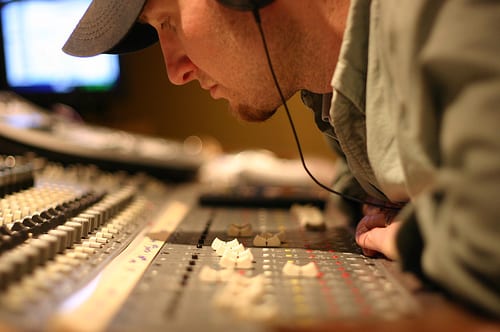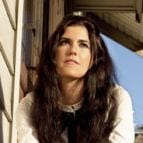 Dreaming big? Keep it up! The road to becoming a professional musician is usually full of ups, downs, victories and frustrations – and it’s up to you to stay focused. What’s the key? Here, Oakland teacher Arrica R. shares her strategy for success…
Dreaming big? Keep it up! The road to becoming a professional musician is usually full of ups, downs, victories and frustrations – and it’s up to you to stay focused. What’s the key? Here, Oakland teacher Arrica R. shares her strategy for success…
I’ve often been asked how I transitioned into being a professional musician, how I was able to license songs as well as open doors that helped me begin to make a living off of music. Being a musician is not a straight and narrow path though and I’ve struggled with the answer to that question – that is, until I reflected upon the best advice I was given: be prepared, as you never know from where the opportunities will be.
Most opportunities I’ve had came from friends, friends of friends, or someone who came to a show after finding my music or seeing a favorable review online. You may never know when to expect it, but what you can work toward is preparing yourself for when it does.
First and foremost, being a professional musician involves working on your craft. Educating yourself, bettering yourself and practicing regularly are at the top of the list. You must be as good as you can possibly be at any given moment. You’ll always be learning and growing as an artist, but you must put in the time and effort for this to occur.
Second, explore new avenues and spread your wings. The more you understand about music the better. If you are a great bass player and an average singer, continue working on your bass skills but you might want to work towards becoming a better singer as well. A bass player who also sings harmonies is invaluable. If you are a phenomenal singer but understand little to nothing about songwriting or you don’t play an instrument, it might be a good idea to learn. Even if you don’t think you’ll ever be a great songwriter or instrumentalist, a basic understanding will allow you to contribute when working with others and also make you a better performer.
Lastly, always have a product. A businessman won’t leave home without a business card and an actor can’t get by without a headshot. If you don’t have a huge budget that affords you time in a professional studio with expensive gear, find a way to record yourself even if you’re only recording demos at home. One of the most important steps I took was learning how to record quality demos of my songs and then having a product to help me get to the next level. I grew as a performer, and my songwriting improved dramatically once I learned basic pro-tools and could experiment with songs.
In short, the best advice I can offer is to prepare yourself for everything you’ve ever hoped for in regards to a music career. The more prepared you are, the more opportunities will be yours for the taking. Never forget that you play music because you love it, but also don’t forget it’s a craft that you must work at diligently if you hope to turn your love of music into a career path.
Join the TakeLessons community and receive exclusive updates, expert advice, tips and more! Sign up for email updates here!

![]()
 Arrica R. teaches singing, music performance, music recording, and songwriting lessons to students of all ages in Oakland, CA. She joined the TakeLessons team in July 2012, with over 25 years of experience studying music. Her music has also been featured and licensed by Starbucks, NBC, the CW Network, NikeWomen.com and MTV. Sign up for lessons with Arrica, or search for a teacher near you today!
Arrica R. teaches singing, music performance, music recording, and songwriting lessons to students of all ages in Oakland, CA. She joined the TakeLessons team in July 2012, with over 25 years of experience studying music. Her music has also been featured and licensed by Starbucks, NBC, the CW Network, NikeWomen.com and MTV. Sign up for lessons with Arrica, or search for a teacher near you today!
Photo by rocketjim45.
Suzy S.